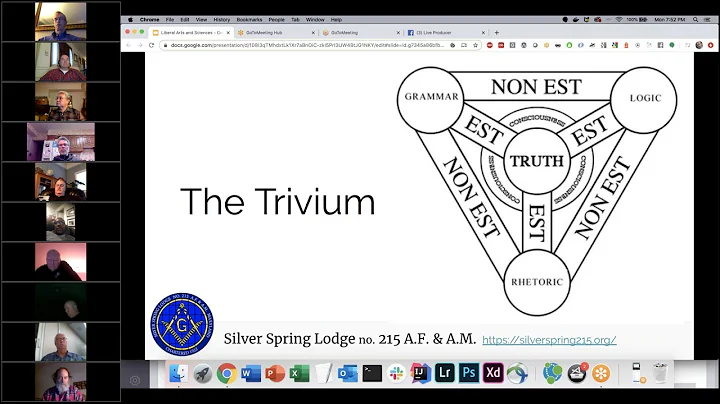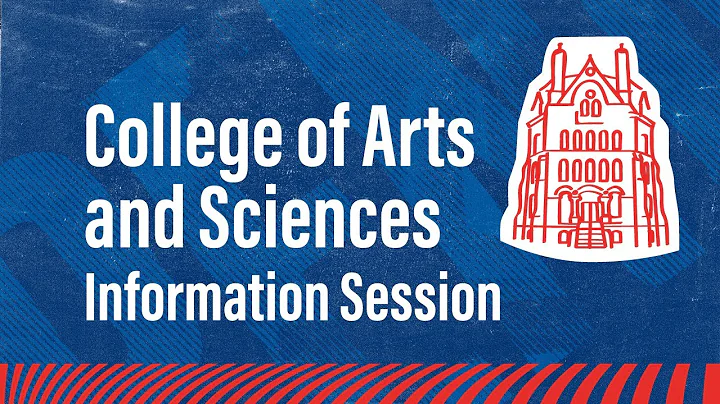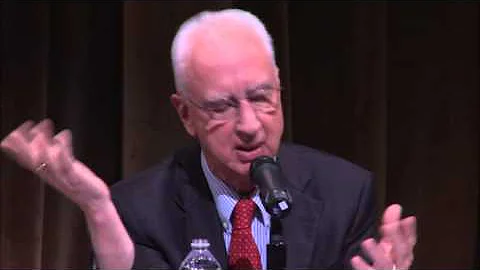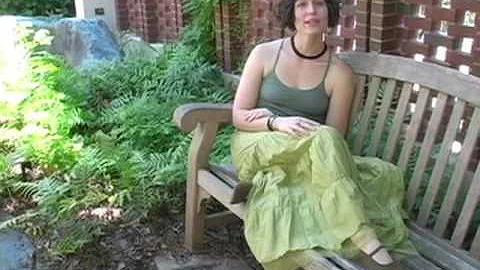Jiyu
The distinction between liberal arts and science may sound very natural to Chinese readers. However, in many universities in the United States, what is "liberal arts" is not so easy to define. The Department of Linguistics and the Department of Literature at the University of Chicago, where I work, are both under the Humanities Department, which sounds the most “liberal.” However, there are scholars in the Department of Linguistics who use mathematical logic methods to do formal semantics, and there are also scholars who specialize in computing. In linguistics, there are also professors who study and record the endangered languages of ethnic minorities in the Mayan region of Mexico and the Chukotka region of the Russian Far East; and the English department not only has senior professors who study Shakespeare, but also young scholars who research and even design video games. As for the Department of Economics, which originally had the strongest quantitative trend in the Department of Social Sciences, the recent momentum is the rise of behavioral economics, which is very unscientific. In 2019, the University of Chicago won the Nobel Prize for behavioral economics. Professor Richard Thaler (Richard Thaler) told reporters in an interview at the time that he was not good at mathematics and did not like mathematics very much, but behavioral economics brought complex mathematics to the entire economics. New methods and new thinking that models cannot provide.

University of Chicago
Echoing the blurred boundaries of "liberal arts", many professors of mathematical sciences and natural sciences at the University of Chicago are not easy to use "science" to define their research and identity. Professor John Goldsmith, a computational linguist, studies both computational methods and sign language. At different times, he served as the head of the Department of Linguistics and the Department of Computer Science. He has a deep friendship with Michael Silverstein, a master of linguistic anthropology at the University of Chicago, and Paul Ricoeur, a philosopher and hermeneuticist. He also once said that in Earlier, the philosophers Sartre and Heidegger who had the greatest influence on his study of linguistics outside of his major were the philosophers Sartre and Heidegger. In addition to his own research in the laboratory, biophysicist and neuropathologist Stephen Meredith also teaches religious ethics at the University of Chicago Divinity School and has read Joyce 's "Ulysses" ", Dostoevsky 's " The Brothers Karamazov ", and courses on the thoughts of the medieval theologian Aquinas . An annual lecture at the University of Chicago Divinity School invites a senior professor from the Department of Neuroscience who studies the brain mechanism of loneliness; similarly, I have heard more than once that the biology and neuroscience laboratories will invite professors from the theology school and the philosophy department. Go to the laboratory to give reports to tutors and students. A special lecture I attended at the University of Chicago Medical School invited Professor Robert Pippin, the chairman of the Social Thought Committee at the University of Chicago and well-known for his research on Hegelian philosophy. Students are taught about bioethics and free will, which are not simple philosophical issues.
Needless to say, for all the scholars and professors mentioned above, doing their "professional" work well within their professional direction is their first task and basic requirement for being a professor. However, they also draw parallels outside of their major, not just for fun. It is not for the vanity of "interdisciplinary", but in many cases, going beyond the major and crossing the narrow distinction of the so-called "arts and sciences" is precisely an indispensable part of their professional knowledge. If some of the "interdisciplinary" research I listed above sound abstract or less relevant outside the academy, then the recent COVID-19 epidemic, global warming, artificial intelligence society, etc. are all too common for us ordinary people. The severity and complexity of well-known cases cannot be dealt with by traditional subject classifications. In the research conferences I have seen at the University of Chicago, the scholars invited in these several directions transcend the liberal arts and sciences, and do not care at all about whether there is a competition between disciplines. The direction of their dialogue combines mathematical models, humanistic insights, empirical observations, and practical participation and decision-making.I have seen Professor Lars Peter Hansen, another winner of the Nobel Prize in Economics at the University of Chicago, publishing a conference paper on reflections on statistical methods in economic models on such an occasion. Among the scholars he thanked in the paper, Including Robert Richards, a professor in the Department of Philosophy who studies biophilosophy, and Jonathan Lear, a philosopher known for his research on Aristotle and Freud on the Committee on Social Thought. . I have seen that many first-class scholars at the University of Chicago and other universities in the United States have this clear understanding: that is, for many of the most difficult problems and challenges we face today, mathematical models will inevitably go astray. Criticism of humanities theory may be vague, and empirical observation will inevitably be muddled in the triviality of experience - only understanding things that seem incomprehensible outside one's own discipline, and sometimes even space and opportunities for communication in unexpected directions. , only by "brainstorming" from open and humble communication can we hope to achieve better progress in many professional studies. The University of Chicago Medical School has held forums on the new coronavirus epidemic throughout this year. Scholars from medical reform , government decision-making, to medical ethics, public health history, vaccine distribution, political theory and other issues have all appeared; in several forums on artificial intelligence In intelligent conferences, computational scientists, philosophers, and ethicists report on the same stage; in conferences on global warming, development economists, historians, meteorologists, and political theorists are present at the same time, either tit for tat, or Inspire each other.
To be fair, domestic interdisciplinary exchanges have several more difficulties than their European and American counterparts. Natural science and quantitative science have received the most attention after the reform and opening up to . One of the results is that the gap between these disciplines compared with the first-class level of their international counterparts is getting smaller and smaller, such as mathematics, physics, biology, economics, etc. In fields such as engineering, there are already many local scholars, and in some branches of disciplines, more than one generation has even reached the leading international level. As for non-quantitative research in the humanities and social sciences, many times, due to cultural and language reasons, their development has not improved significantly, or there is a lack of communication with international colleagues in this discipline. Also because of these unbalanced developments in practice, many scholars in the natural sciences or quantitative social sciences did not have many opportunities to access first-class humanities training that undergraduates in many European and American universities have access to when they were students. Later, they entered more specialized fields. When doing research in other fields, it is also more difficult to understand high-level non-quantitative social science research, or to appreciate what top-notch humanities research looks like. Many unfortunate misunderstandings have arisen from this.
However, for many interdisciplinary exchanges between high-level scholars, outsiders often seem to feel that there is no immediate effect or use at first glance. Some people may ask, if there are so many good scholars who "go beyond liberal arts and science" in the United States, why does the economic crisis still occur, and the epidemic or racial issues are not even solved as well as in many developing countries? My personal thought is that such questions may arise from a misunderstanding of the identity of a "scholar": what a scholar can do is not to provide a "short-term, quick" panacea for any hot issue or thorny social problem. In the work that scholars do, they often have to face complexity, look for blind spots, and often even have to single-handedly resist the prejudice and forgetfulness of groups within and outside the profession. These jobs require long-lasting endurance, extraordinary creativity, and long-term training and experience. Even if a few of them may eventually be understood by the public, the vast majority of the specific work can only be done under the public's interest and attention. outside. After the SARS epidemic in 2003, Chinese scientists spent 15 years in silence, and it was not until 2017 that they basically completed the traceability work and made it public; Dr. Fauci, the leading scientist in the United States' fight against the epidemic, was already a leader in the Reagan administration's response to the epidemic as early as the 1980s. chief advisor on the AIDS crisis, but it was not until this COVID-19 epidemic that his name became widely known outside of his profession. These characteristics of scholars are not limited to specific disciplines, let alone the so-called "liberal arts" or "science."The specific division of majors is often restricted by historical reasons and many social and institutional factors. However, for good academic problems, whether they are abstract theoretical problems or specific practical problems, artificial subject divisions are only starting points and bridges, but are far from solutions. plan. Good scholars not only have the awareness, ability and courage to transcend previous subject divisions and problem divisions, but also have the vision and mind to see that the professional methods they have mastered are just a drop in the ocean when facing the problems they want to solve. Although it is very difficult to understand each other in the modern professional and academic world with a high degree of division of labor, we should continue to and patiently create opportunities for communication, cultivate curiosity for communication, and promote an institutional and social environment for good-faith communication. Professional academic work is not easy, and a superficial dispute over liberal arts will only make each other's vision and mind narrower, which is of no benefit to both "literature" and "science".
At the University of Chicago, interdisciplinary and cross-field exchanges, both historically and today, are not always warm and friendly. Sometimes they can reach the point of quarrels or cold looks. In the 1950s, liberal economist Hayek (Friedrich Hayek) and conservative political philosopher Leo Strauss worked together on the Committee on Social Thought at the University of Chicago. Recent historical research shows that they were at least In public, they only treated each other with indifference; in the early 1990s, liberal philosopher Martha Nussbaum and conservative philosopher Allan Bloom, both at the University of Chicago, debated openly in newspapers and on campus. At almost the same period, Gary Becker, one of the leading figures of the Chicago School of Economics who was good at difficult mathematical models, and Gary Becker, who emphasized that economic activities must be understood and studied within culture. Marshall Sahlins, the leader of the Anthropological School, had many public debates in school. It is said that the atmosphere of the debates was quite friendly at the time, but the content of the debates was not published in a formal way in the end. The academic differences are still passed down and discussed among economists and anthropologists at the University of Chicago to this day. However, it is worth noting that these academic debates are never about labeling disciplines or schools, let alone ridicule and suppression. These debates all take place in the same university or even the same department (similar examples known to the author There are several more among other departments or colleges, which will not be described here due to space limitations). The University of Chicago consciously brings together first-class scholars with different views and even ideologies to harmonize without differences and fight without breaking through. Many academic disputes last for decades, but they do not affect the scholars' personal lives outside of academia. Friendship - on the contrary, the professional "realism" of top scholars and their ambition to transcend disciplinary boundaries, as well as the vision created by these debates to simultaneously pursue top professional academic research and an inclusive atmosphere that transcends professional academic barriers, no matter what I read I have a deep understanding of it from historical materials and from seeing it with my own eyes at school. Hayek’s first lecture at the school when he was hired at the University of Chicago was attended by physicist Enrico Fermi and many of his fellow scientists; the physics of astronomer Subrahmanyan Chandrasekhar Nussbaum’s lectures on political philosophy included Ngô Bảo Châu, winner of the Fields Medal, and Ngô Bảo Châu. Come and listen; Edward Shaughnessy, a professor in the Department of East Asia who studies the archeology of China's Shang and Zhou dynasties, will draw inspiration from Philip Gossett, a professor of music who studies the Italian composer Rossini. Top scholars will not be bound by the labels of disciplines, schools, and doctrines, but will take the lead in breaking these boundaries, especially the boundaries of their own disciplines and their own minds.
editor in charge: Zhu Fan
proofreader: Zhang Liangliang





















